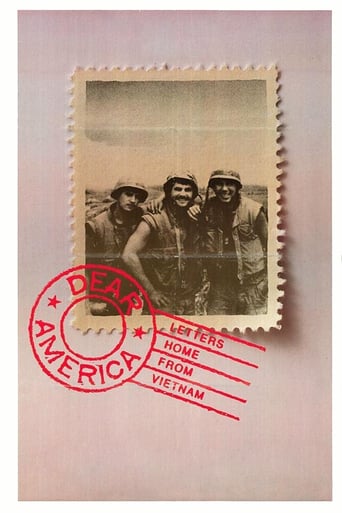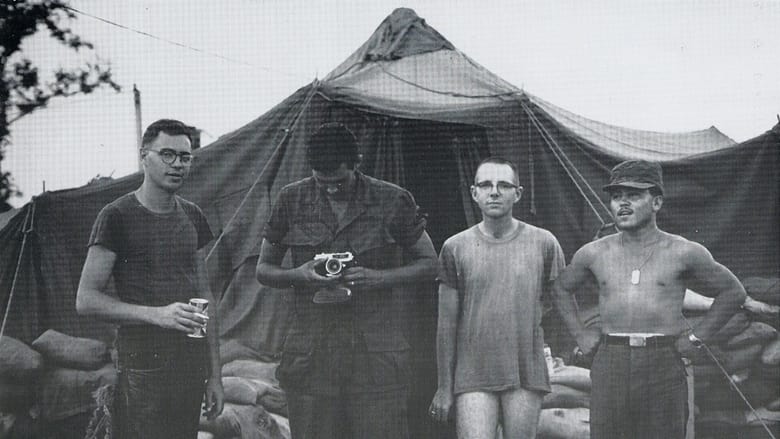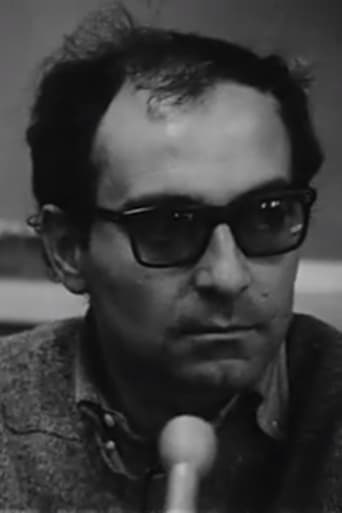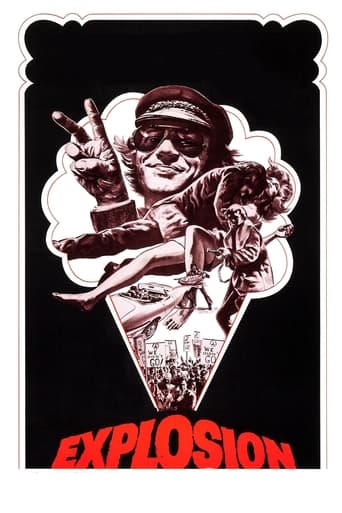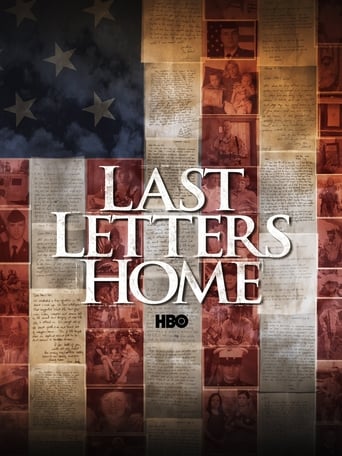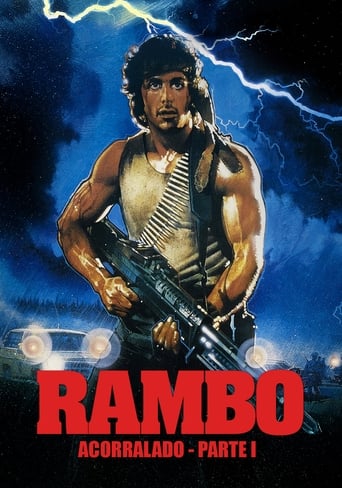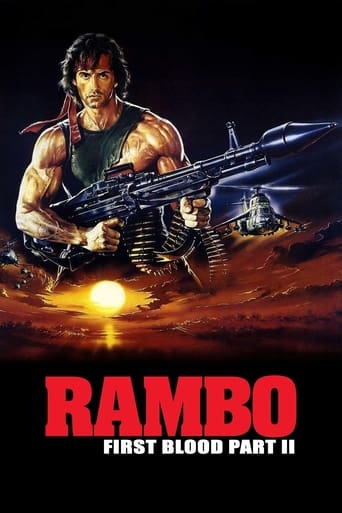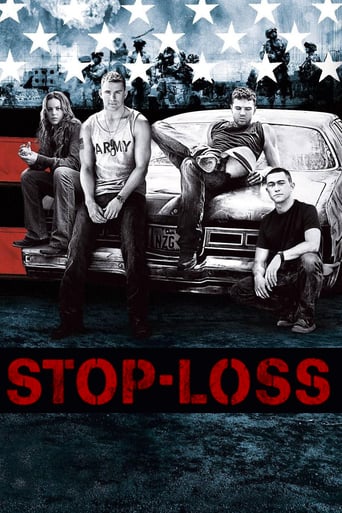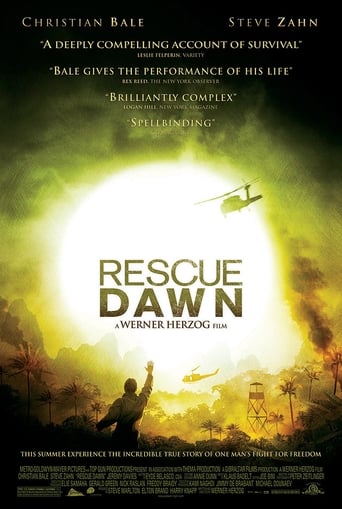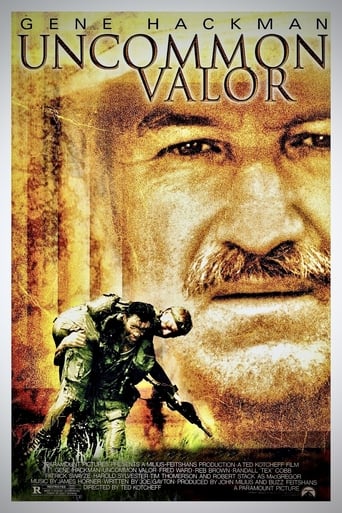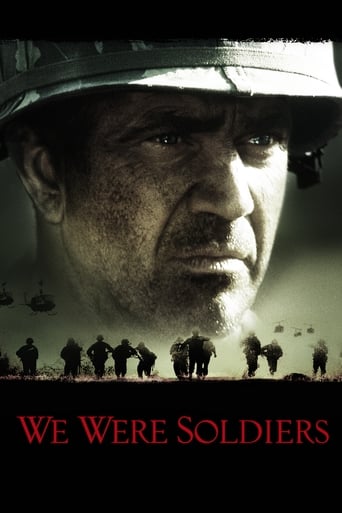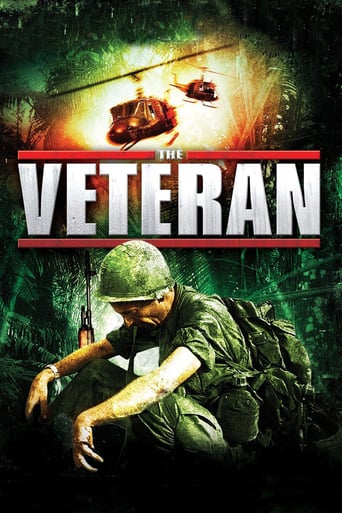Dear America: Letters Home from Vietnam (1987)
Real-life letters written by American soldiers, sailors, airmen, and Marines during the Vietnam War to their families and friends back home. Archive footage of the war and news coverage thereof augment the first-person "narrative" by men and women who were in the war, some of whom did not survive it.
Watch Trailer
Free Trial Channels
Cast


Similar titles
Reviews
not as good as all the hype
Just perfect...
Your blood may run cold, but you now find yourself pinioned to the story.
It is encouraging that the film ends so strongly.Otherwise, it wouldn't have been a particularly memorable film
After a long cycle of dramatic fictions the true voice of the Vietnam experience is restored to those who knew it best: the veterans themselves, both living and dead. There may be a built-in flaw behind the idea of quoting letters out loud on camera (because on paper the written word has a silent voice that speaks to the reader directly), but director Bill Couturié does what he can to minimize this drawback by hiring an ensemble of professional actors to help articulate the emotions locked on each page: confusion, bitterness, terror, rage, sorrow, and irony. Viewers can play the guessing game of celebrity voice identification, but after a while the words seem to fade away beneath the horror of the imagery itself, a compilation of TV news stock, home movies, and other footage, including rare scenes from inside a North Vietnamese prison camp. The letters are arranged chronologically, and as American military presence increases so too does the viewer's emotional involvement. Some of the correspondence is more effective than others, but every letter is an eloquent reminder of the loneliness of the common soldier, and of the importance of that vital link through the mail between home and hell.
This is undoubtedly the best documentary about our involvement in Vietnam. Director, co-writer, co-producer Bill Couturié reteaches documentary hounds how it is done, following in the footsteps of such mighty mentors as Robert J. Flaherty. The only talking heads seen in "Letters Home...." are those from the era via old newsreels, TV broadcasts, Presidential addresses, Congressional comments, and such. "Letters Home...." also represents one of the best integrations of historical events with music from the period under study. Couturie in being as objective as possible for anyone who lived through the Vietnam era, shows the horrors, political machinations, and atrocities of the war along side the bravery, patriotism, and sacrifice made by those young men and women who faced death on a daily basis. The unnecessary murder of students at Kent State by the Ohio National Guard is highlighted along side the letter from a grunt in Vietnam asking Americans to be as concerned about the thousands of their countrymen dying in the jungles of Southeast Asia as they are about the four who died in the Kent State massacre. One sees first hand how a minor brush fire in a distant corner of the world becomes a conflagration that nearly destroys a great nation, how politicians such as the Texas anachronism Lydon B. Johnson and the paranoid Richard M. Nixon continue a conflict after it becomes apparent even to those fighting the war that victory has become an illusion. One thinks of those gallant Americans who continued to lay their lives on the line during the gradual retreat, knowing that the cause for which they were fighting was now fleeting. The documentary consists of letters written home by America men and women serving in Vietnam. Tragically, most of the authors of the letters were casualties of the war. Many of the voices will be recognizable by the viewer because they are still actors and actresses who are currently making movies. Such dramatic readings add to the overall effect of this powerful film.The heart of this documentary is paying tribute to American fighting forces who battled against all odds for their country and the freedom for which it stands. The ending is particularly moving with a letter from Mrs. Stocks left at the Vietnam Memorial, the Black Wall as she calls it, for her KIA son: "I would rather to have had you for twenty-one years and all the pain that goes with losing you, than never to have had you at all. -Mom." Though the crux of the movie is dead serious, there is much humor strewn about to ease the effect of the brutal footage shown; otherwise, the documentary would have been much too morose to watch for nearly one and a half hours. One letter talks about the water tasting like p*ss; another from a wounded grunt tells his mother (can you believe?) that the bullet came too close to his pecker for comfort. There is also news footage of grunts clowning around in camp (one takes out his false teeth for the camera; another exhibits his less than adequate family jewels). The documentary begins with soldiers having fun surfing in the ocean as "Wipe Out" is played in the background. This is interrupted by Hughies peppering the ground with bullets. There is a respite from the horrendous shots of bodies floating in the Mekong as people cruise by nonchalantly in boats, with a Bob Hope show featuring beautiful young women and a rowdy audience of soldiers. One young man is asked by Bob Hope how he likes Miss India. Stumbling for an answer since he knows he's on camera, the nonplussed young man holds up his hand and says, "How!" Too bad there is no soundtrack CD for "Letters Home...." Some of the best music from the Vietnam era, or from any era for that matter, is played to make the vintage film clips more meaningful, more relevant. Some of the standout tracks are: "Fortunate Son" by Creedence Clearwater Revival, one of the few Vietnam War protest rock songs of the day. "A Change is Gonna Come" by the legendary Sam Cooke, who was murdered at the height of his career by a jealous woman before the Vietnam War became a reality (his song is still prophetic for the war and for the Civil Rights Movement of the day, "A Hard Rain's A-Gonna Fall" by the folk rock icon, Bob Dylan. "Are You Experienced" and "Five to One" by the equally legendary Jimi Hendrix, "Gimme Shelter" and "No Expectations" by the Stones, and the epitome of post-war re-evaluation, "Born in the U.S.A." by the Boss. Also included is the apocalyptic "Once I Was" by the neglected artist, Tim Buckley. The rest of the soundtrack is just as powerful and meaningful, with nary a clinker.For those who lived through the tragedy of Vietnam, "Letters Home...." will bring back memories, both good and bad. To those who belong to a later generation of Americans, viewing "Letters Home...." will provide a better understanding of the Vietnam experience.
For close to a decade we simply pretended that it never happened. We lost. It was a mistake. But by the Eighties, the United States, strengthened by distance from the event, spent a lot of cultural capital expatiating the Vietnam War: tell-all books; magisterial policy summaries; sordid and violent fiction; meticulous PBS documentaries; TV dramas (remember *China Beach*?); the magnificent work of art that is the Vietnam War Veterans Memorial; and, of course, movies. Aside from that great and powerful Wall, I believe that this humble HBO documentary, *Dear America: Letters Home from Vietnam* is perhaps the most artful and cogent assessment of the War. 86 minutes in length, it boasts entirely historical footage from both NBC News archives and soldiers' own video, the urgent and timeless rock music of the period, and, of course, the soldiers' letters to their loved ones back in The World.The letters, ironically, reveal the only blemish to this wonderful film: the somewhat misguided decision to allow celebrity actors to read them. Funnily, most of these actors were "veterans" of Vietnam War movies: Tom Berenger (*Platoon*); Robert De Niro (*The Deer Hunter*); Michael J. Fox and Sean Penn (*Casualties of War*), Robin Williams (*Good Morning, Vietnam*), Martin Sheen (*Apocaylpse Now*), and so on. One can't shake the feeling that the stars must have felt a kinship -- unearned, obviously -- with the average joes who wrote the letters. When you suddenly hear the instantly recognizable voice of, say, Robert De Niro, you are necessarily taken out of the visceral experience that the movie creates. Although I honor the big shots' intentions (they took no pay for this), their services weren't really required, here.Thankfully, the selections are brief enough so as to minimize any thespian showboating. And this brevity highlights, rather than diminishes, the eloquence, humor, desperation, and meaning of the soldiers' words. They write about the day-to-day routines of camp, the abject terror of hacking their way through elephant grass wherein the unseen enemy lurks, the beauty of an improvised fireworks show (miraculously caught on film, providing a visual accompaniment to the letter), the seedy delights that await the next R&R excursion in Saigon, the despair of losing your best friends in battle, and so much more. Visually, the film may be even more impressive: there's some amazing footage of bombardments, mortar attacks, firefights right in the midst of the action, and the day-to-day horseplay in camp. Perhaps the most stunning footage was shot in Khe Sanh: a group of besieged Marines, anxious to fight, depressed at being shut in, hair slowly growing to mop-top proportions, wax philosophically about their situation even as that situation grows worse day by day. (Ultimately, there were 77 of those days.) Occasionally, their forced calm gets rattled by a devastating mortar attack on their ramparts from the Viet Cong. Just amazing footage. Of real historical value, too. Speaking of amazing and historical, the North Vietnamese footage of American POWs gingerly celebrating Christmas while in custody will haunt you.On the periphery of all this found footage, director Bill Couturie keeps a chronological record of the Big Picture, with the assistance of the archives of NBC News. (He somehow located the video of the first 3,500 troops who landed in country in 1964!) On each December 31, title cards inform us of the growing death and casualty tolls suffered by American troops -- by the end of 1968, these numbers have grown to horrifying proportions. Couturie doesn't delve into the background of the conflict, and rightly so: this is the soldiers' story, not a thesis paper by a policy wonk. What does emerge, however, is the utter helplessness of those in command, from LBJ to General Westmoreland to Richard Nixon. One gets the sense that our leaders were trapped in a policy of their own devising. No way out. No victory forthcoming, no matter how many bombs we dropped. A war feeding itself; a self-perpetuating machine. These small-minded men clearly had no solutions -- none, at least, that would salvage enough of the nation's honor to mitigate the whole misbegotten enterprise.Boy, this all sounds familiar, doesn't it? -- read the news lately? Oh well. Santayana's advice about history is always cited and never followed. In any event, this Veteran's Day (three days from now as of this writing), I'll watch *Dear America* -- now on DVD -- with my father, a Vietnam veteran awarded the Bronze Star, Purple Heart, and even a yellowing certificate of Merit from the long-gone South Vietnamese government. For many years, he, like the rest of country, couldn't talk about the war. Now, he looks back on it with wonder, sadness, and pride. For those GenX children of surviving Vietnam Veterans, consider how lucky you are if your Dad was one of the lucky ones to get back to The World alive, and listen, listen, listen. These men and women have much to teach us, now more than ever. *Dear America: Letters Home from Vietnam* can help get that conversation started. Thank you, Mr. Couturie, for this important film.9 stars out of 10.
I saw this movie during my English class about a week ago and I can say that it was the best documentary movie I have ever seen. Everyone's eyes were glued on the movie and that is very rare to see in my class. If was an emotional movie. Famous actors read the letters that men and nurses wrote during the war. You saw what it was like for the soldiers and what was going through their heads at the time. The music in the movie was connected to the time period of the war and it fit the movie really well. It helps you feel connected to the soldiers through their own words. The people who read these letters read them with such passion that you just listened and it felt as if the soldier themselves were reading them. You didn't pay attention at all to the people reading the letters but to the words they were actually reading. I would recommend this movie to everybody and anybody. It is so powerful and it has a really strong impact on the viewers.

